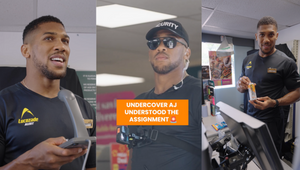
We Are Social Report Finds Aspiration Gives Way to Authenticity in Travel Content

We Are Social, the global socially-led creative agency, has launched its latest report: The End of Wanderlust? How Travel Content is Getting Real.
The report highlights that the era of aspirational, perfectly curated travel content is giving way to a demand for raw, relatable, and honest experiences. This shift is driven by a digitally native generation that leverages social media as its travel agent - a place not just for inspiration, but as a primary tool for research, planning, and even booking.
A significant 75% of travellers now use social platforms for research and inspiration and 40% of gen z have booked trips directly influenced by content seen there, which underscores the influence of online conversations. We Are Social’s own research, based on a sample of social conversations, found a 60% drop in the use of 'aspirational' travel hashtags like #wanderlust, and a doubling in usage of more honest, self-deprecating terms such as #rawdogging and #travelfail.
The report highlights key themes from brands who are embracing more realistic and authentic travel content. These include:
Authentic Moments Steal the Spotlight: Disney's 'This is Magic' campaign shifted focus from traditional, scripted parades to showcasing candid, 'in-between' moments of real visitors. This approach generated 11 million engagements and a 300% increase in website visits, demonstrating the power of genuine, unscripted content.
Unexpected Entertainment Cuts Through: Booking.com moved beyond competing solely on destinations, instead focusing on traveller 'motivations.' They created highly engaging, 'thumb-stopping' stories with diverse creators and cleverly leveraged cultural moments, resulting in over 60 of their TikTok videos surpassing one million views in 2024.
Social Sales Supercharged by Creators: Southwest Airlines prioritised relatable, behind-the-scenes content from their crew and passengers. By partnering with TikTok for shoppable flights, they empowered creators to capture authentic experiences with just a mobile phone and a boarding pass, making trip planning effortless and integrated for younger audiences.
The report also explains how brands can capitalise on this approach to social, by developing a chronically online mindset, underpinned by a robust measurement framework. It demonstrates how We Are Social has applied this to its work with brands like Air France, Tripadvisor and Booking.com.
Matt Brown, strategy director at We Are Social, commented, "For years, travel marketing has leaned into the aspirational, painting a picture of flawless escapes. Our report shows a clear shift: today’s travellers, especially younger generations, are seeking authenticity and connection. They want to see the real journey, the unexpected moments, and the genuine experiences. For brands, this means moving beyond glossy campaigns to embrace a more human, relatable, and sometimes even self-deprecating approach. Brands need to be real, be relevant, and be where the conversations are happening.”
Paul Greenwood, global head of research and insight at We Are Social, added, "Social media is no longer just a post-trip photo album; it's the heart of the travel planning process. From initial discovery to final booking, social platforms are influencing decisions at every stage. Authenticity has always been crucial on social, and this desire and expectation to see authentic content has now filtered through to travel - the brands winning today aren’t just showcasing the destination, they’re building deeper connections with the next generation of travellers by embracing the reality of each trip.”
Download the full report on We Are Social’s website.















